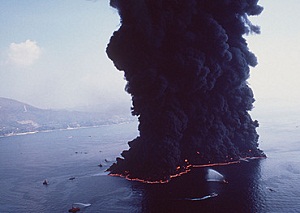Report: Oil dependency is a security issue
 The California Secure Transportation Energy Partnership, a non-partisan group concerned with the state’s energy security, released an updated comprehensive report on what California can do to reduce its dependence on fossil fuels Wednesday.
The California Secure Transportation Energy Partnership, a non-partisan group concerned with the state’s energy security, released an updated comprehensive report on what California can do to reduce its dependence on fossil fuels Wednesday.
The report recommendations focus on three primary goals, including that the state invest in fuel diversity, fuel efficiency and a reduction in the number of miles driven.
The report calls for a reduction in fossil fuels used in its transportation sector and a turn toward renewable energy sources like solar power by, among other things, implementing a fee, probably in the form of increased gas tax, that will be reinvested in public transportation and incentives for consumers to buy new and innovative cleaner transportation options.
The report also asks for the California government to codify, implement and enforce new standards in the transportation industry the way the state has done in the commercial energy production world, which has led to a significant increase in renewable energy production and major solar installations.
California has invested heavily in moving from fossil fuels to solar and other renewable energy production. With a goal of getting 33 percent of its energy from renewable sources, California has become the largest solar-energy economy in the country.
Sven Strohband, a Silicon Valley venture capitalist and former Volkswagen engineer, said the state needs to apply some of the same savvy it has used to go solar in implementing a new transportation policy that will wean it from oil dependency.
The partnership’s report asks government officials to invest in infrastructure for mass transportation and innovation, the way it invested in solar.
While the report focuses on California and what California legislators can do to improve energy security in the state, members of the Partnership believe the implications of their recommendations could be even more far-reaching.
“We’re not just a state,” George Shultz, the former secretary of state under President Ronald Reagan and a distinguished fellow at the Hoover Institution, said of California. “If we were a country, we’d be the eighth largest in the world. And we’ve always been a leader.”
He said that California has consistently implemented policies throughout history that the federal government has later adopted. And when it comes to discussions about security, especially energy security in this day and age, the federal government is listening, Shultz said.
Shultz and Strohband were among several notable members of the partnership who spoke about the need for and potential impacts of the recommendations in the report during a national press conference on Wednesday.
Shultz said, during the conference, that energy is a major security issue in California and the country. He noted that energy in relation to national security has long been an issue.
“[President Dwight D.] Eisenhower was famous for saying that if we ever imported more than 20 percent of the oil we used, we were headed for trouble,” Shultz said. “I began to think President Eisenhower had a point around the oil embargo of 1973.”
He said one of the biggest problems the country faces now is its forgetfulness, seeming spurred into action when gas prices go high and lulling into complacency when they go back down again, he said.
“We’ve been on this rollercoaster since the 1970s, and I hope it’s different this time,” Shultz said. “How many times do you have to get hit on the head with a two-by-four before you realize something is hitting you and you need to do something about it?”
The partnership presented its first energy security report in 2007. It was well received then, and many of the report’s recommendations have been incorporated and passed into law since then, said partnership President and CEO John Boesel.
For that reason, the partnership is hopeful many of its recommendations this time around will be taken seriously.
The climate is right for change, Shultz said.
Story continues here.
Pictured: The Cypriot oil tanker "Haven" burning in the Gulf of Genoa in 1991. Image courtesy of Greenpeace.



